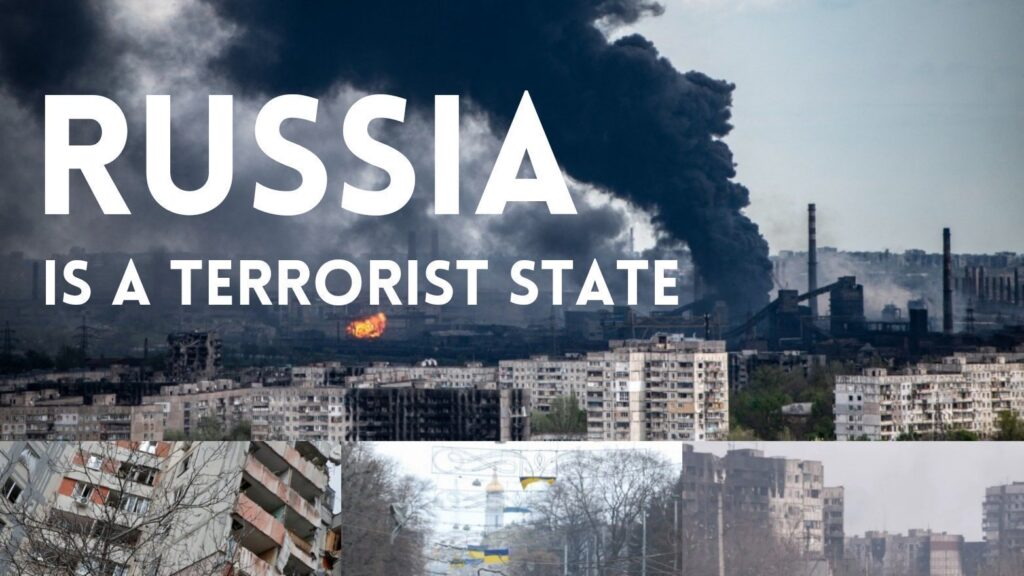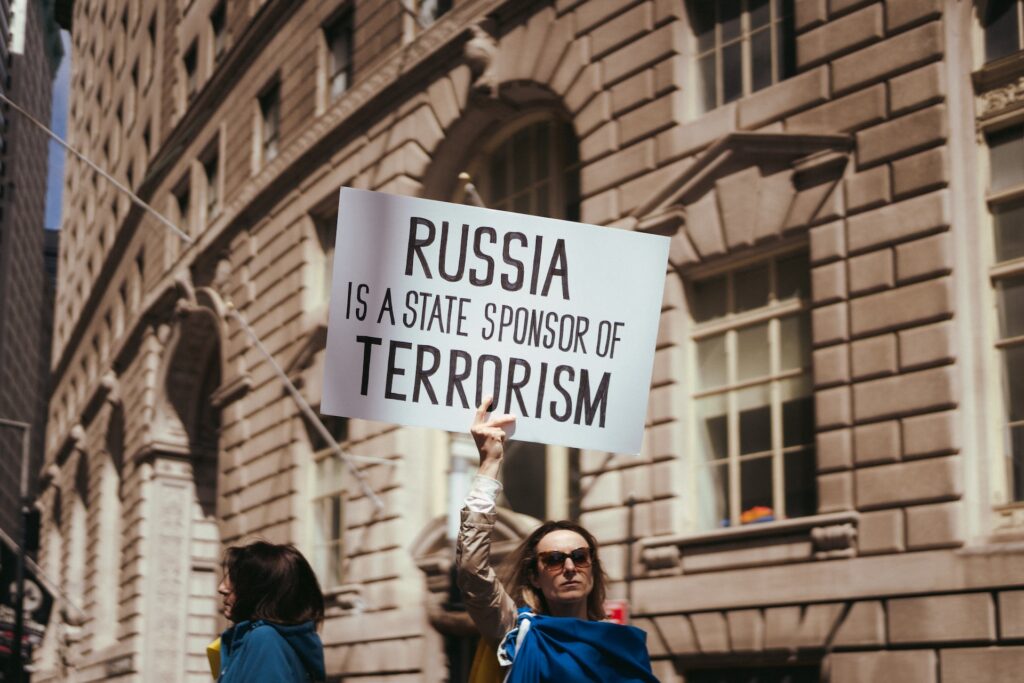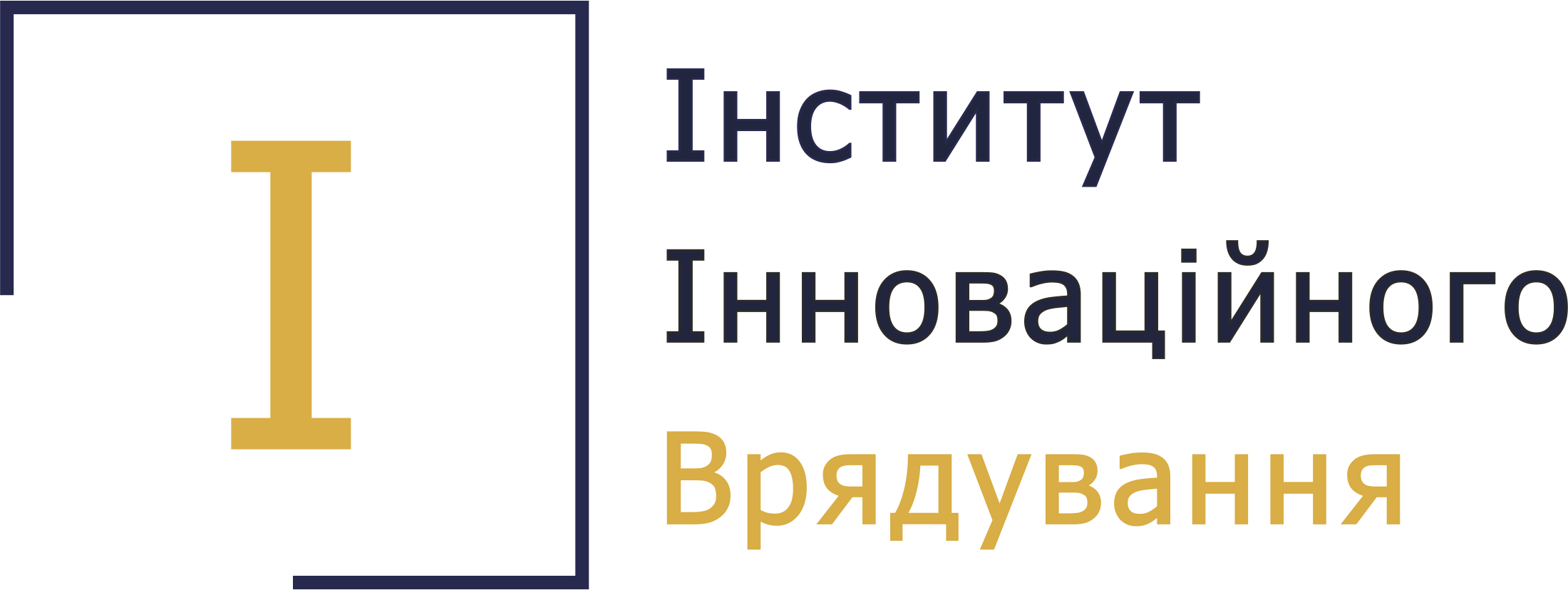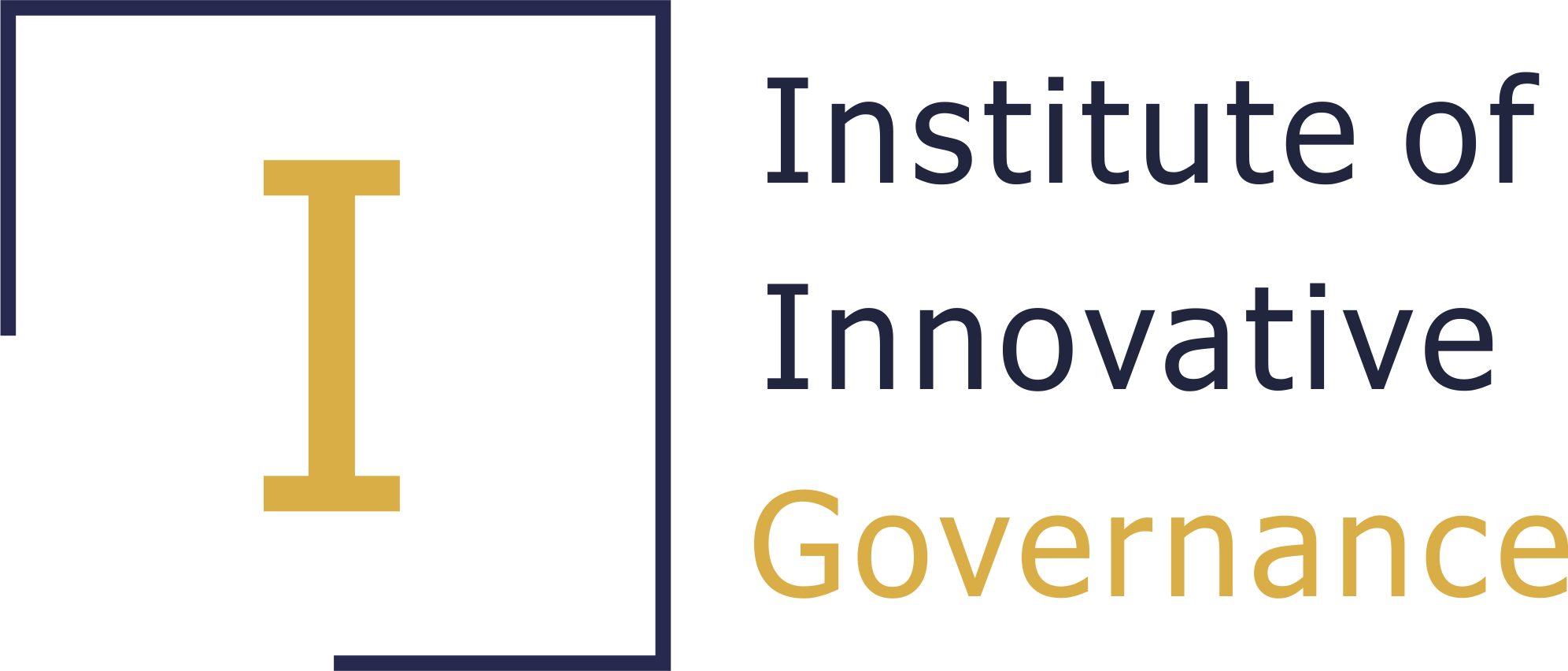
The sanctions on Russia as a result of its war against Ukraine are probably the toughest actions that the European Union has taken against an authoritarian regime.
Their full effects are yet to be seen in terms of the financial and logistical capacity of Russia to continue the war—but they leave one problem unsolved. Russia’s military has repeatedly committed acts of terrorism in Ukraine and the EU does not have a legal mechanism to designate the country and President Vladimir Putin’s regime as sponsors of terrorism.
Various international bodies, including the UN Independent International Commission of Inquiry on Ukraine to the Human Rights Council, have confirmed that Russia’s military has killed thousands of Ukrainian civilians and carried out mass acts of terror in the Ukrainian territories it has occupied. For instance, Pramila Patten, the UN’s special representative on sexual violence in conflict, has reported that it has used sexual violence as a “deliberate tactic.” In recent days, a large number of Russian rockets and drones have hit key Ukrainian civilian infrastructure and killed dozens of Ukrainian citizens.
There is little doubt that these acts fit the definition of terrorism in key international documents such as the UN General Assembly Resolution 49/60 of 1994 or the EU Framework Decision on Combating Terrorism of 2022. However, the EU does not have a comprehensive process that would allow it to designate any country as one that actively supports terrorism.
The EU framework decision sets out how legal cooperation between member states should be set up to fight terrorist organizations and individuals, but it gives little attention to how to behave toward a country that actively supports terrorism. A 2021 Common Position of the Council of the European Union allowed the creation of specific mechanism to fight terrorist organizations. The most important EU body in this regard is the Working Party on restrictive measures to combat terrorism (COMET). It is responsible for making recommendations to the council, which then decides whether to include a specific entity or person on the terrorist list. However, COMET is not responsible for monitoring how state entities actively support terrorism. As a result, the list can include only individuals and groups.

The EU adopted its first restrictive measures against persons and entities involved in terrorist acts in December 2001 in the wake of the 9/11 attacks. This was to implement UN Security Council Resolution 1373 of 2001, which aimed at creating international counterterrorism frameworks. More recently, the Council of the European Union adopted the abovementioned Common Position as well as a regulation on specific restrictive measures directed against certain persons and entities. However, none of the above included measures to address governments that sponsor terrorism.
Being officially designated as a state sponsor of terrorism entails the de facto economic and political isolation of a government, which is exactly what is needed to stop Russia from committing more war crimes and terrorist acts in Ukraine or elsewhere.
By contrast, the United States legally defines a state sponsor of terrorism as “a government that has repeatedly provided support for acts of international terrorism,” where terrorism is defined in US legislation as “premeditated, politically motivated violence perpetrated against non-combatant targets.” The United States currently lists four state sponsors of terrorism: Cuba, Iran, North Korea, and Syria. A country designated as such is automatically exposed to US sanctions, including a ban on arms-related exports and sales, denying companies and individuals tax credits for income earned in that country, and severe controls over exports of items that can have military applications. Moreover, being officially designated as a state sponsor of terrorism entails the de facto economic and political isolation of a government, which is exactly what is needed to stop Russia from committing more war crimes and terrorist acts in Ukraine or elsewhere.
If the EU wants to stop Russia and its terrorist acts in Ukraine, it is imperative for it to adopt a definition of a state sponsor of terrorism and to create a mechanism for applying sanctions to such states. The first step can be taken by the European Parliament with the adoption of a resolution calling on the European Commission and the Council of the European Union to introduce such a definition and mechanism. The commission and member states would then need to agree on how to create a mechanism, which may take months.
Recently, the European Parliament approved by a large majority a resolution proposing specific treaty amendments and asking member states to set up a new convention to reform the EU treaties. In particular, the resolution proposed to amend Article 29 of the Treaty of the European Union, which allows the EU to adopt sanctions against governments of third countries and non-states entities such as terrorist groups. The proposed amendments would give the EU a new mechanism to designate countries as sponsors of terrorism and to respond to major political challenges, in line with the principles of EU foreign and security policy. European Commission President Ursula von der Leyen has supported the proposal and European Parliament President Roberta Metsola has written two letters to the Presidency of the Council of the European Union asking to proceed with a convention for the revision of the treaties. However, the member states have generally been reluctant to review the treaties and the council has not taken any concrete action yet.
Nevertheless, the international pressure on EU decision-makers to address Russian terrorism is increasing significantly. Some European parliamentary bodies have already called on the international community to recognize the terrorist acts performed by Russia. The Parliamentary Assembly of the Council of Europe has recently approved a resolution that contains paragraphs that recognize Putin’s regime as a terrorist one. The parliaments of Estonia, Latvia, and Lithuania have declared that Russia carries out terrorist acts. On October 18, Guy Verhofstadt, a member of the European Parliament and former prime minister of Belgium, tweeted that in its next session the parliament would officially declare Russia a terrorist state.
The EU now has a historical opportunity to create a new instrument that will support its proclaimed role in defending human rights and peace and security in Europe. And, most importantly, it will be a concrete step to help stop Russia’s aggression against Ukraine.
Anna Melenchuk, co-founder of the Institute of Innovative Governance.
Andrea Castagna, secretary general of the European Digital Development Alliance.

